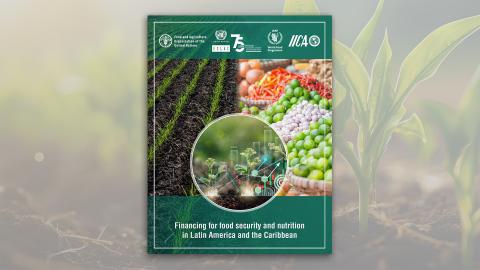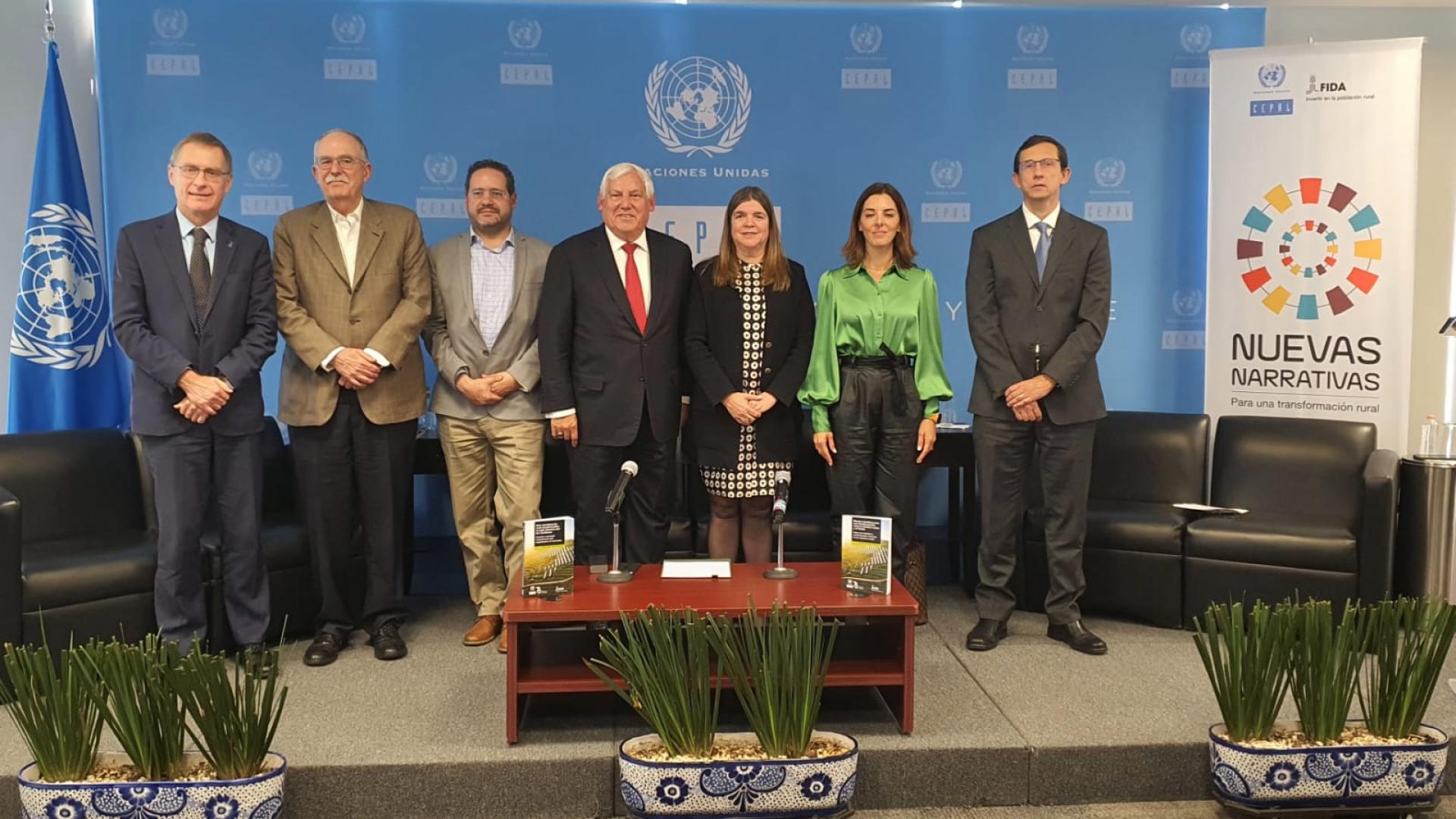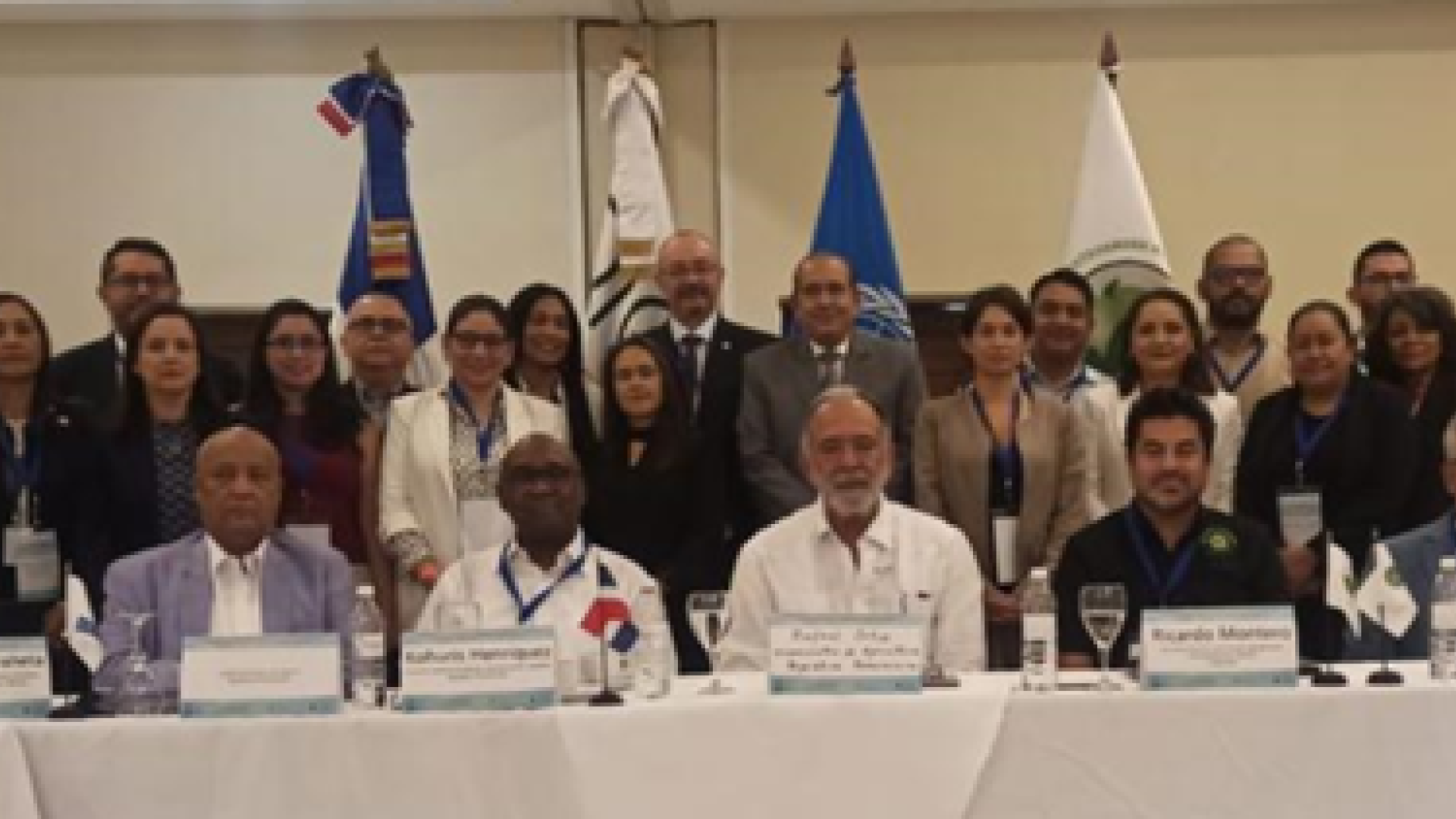Press Release
COP28 was carried out from November 30th to December 12th in Dubai, United Arab Emirates and SE-CAC had an active participation at the SICA Pavilion among other events with agency partners to present the regional work on the themes of agriculture and climate change and their impacts, adaptation, and mitigation.
CAC and ECLAC has a work program in which contributes to the public policy implementation of Sustainable Agriculture and Adapted Climate (ASAC) and food and nutritional security (SAN). This program includes the analysis and strengthening of technical capacity building with respect to the potential impact of climate change and possible responses. Under this framework, ECLAC and CAC agreed to carry out a regional analysis of agricultural vulnerability to climate change. This is the first analysis of agricultural vulnerability to climate change for the entire SICA region. In its preparation, included were the contributions and revisions of SE-CAC and from the delegates of its Technical Group of Climate Change and Integral Risk Management (GTCCGIR).
By request from CAC this document was presented at COP28 by Jaime Olivares, official of the Agricultural Development and Climate Change Unit from the sub-regional headquarters of ECLAC in Mexico. The parallel event was moderated by Executive Secretary of CAC Lucrecia Rodríguez and was discussed by Edwin Castellanos, first author of Group II of the 6th report of IPCC (AR6). In the presentation the challenges that involved the methodology and information at the municipal level were presented, as well as the results of current vulnerability and with climate change scenarios for agricultural activity involving crops for the SICA countries.
Among the principal results included the mapflows to calculate the indices of exposure, sensitivity, and adaptive capacity. It was highlighted that drought was given greater weight over storms and floods because they have a greater impact on agriculture, the result is a greater exposure to the Central American Dry Corridor. In terms of sensitivity, areas that are not optimal for the cultivation of basic grains and coffee were identified, mainly with the current climate, and it was shown how the climate change scenarios would increase the sensitivity of agricultural activity and therefore, vulnerability and other variables remain constant. Regarding adaptive capacity, the lack of information needed to produce a better indicator was emphasized. Nevertheless poverty, percentage of population with access to drinking water and access to main roads of rural populations were taken into account for the study. The presentation addressed recommendations to advance in the next vulnerability analyses at the national and regional levels and the importance of periodic analysis of the sector's vulnerability to climate change in order to have adaptation measures in accordance with the results.
For his part Edwin Castellanos made recommendations on the methodology and called for the coutries to generate more information to have better vulnerability measurements. He also stressed that the document should be made available for other studies and programs since the information generated in the study is very useful and relevant, as well as for future reports of the IPCC. The event ended with the words of Ms. Lucrecia Rodríguez who reiterate the importance of the study for identifying more vulnerable areas and the need for more variables to be incorporated into the analysis, as well as a collaboration with other projects from CAC, in the incorporation of vulnerability maps. The Executive Secretary appreciated the participation of ECLAC in these efforts.
Note: The acronyms mentioned in this briefing note are from their original Spanish names.



